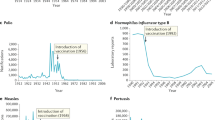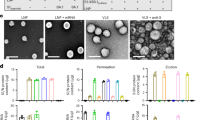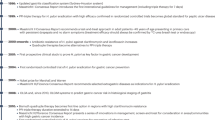Abstract
PREVENTION of entry of antigen into the systemic circulation through mucous membranes depends partly on the physical integrity of the mucous membranes and the mucous layer and, no doubt, on other nonspecific mechanisms. These systems are, however, not completely effective and there is also a specific acquired capacity for immune exclusion of antigen. For example, everted gut sacs from rats previously fed with an antigen show specific reduced transmission of the antigen, as compared with sacs prepared from animals not fed in this way1. Passive transfer in vivo, using cell free homogenates of mucosae from antigen-fed animals has also been reported but the mechanism was not identified2. One possibility is IgA antibody, the principal immunoglobulin of mucous secretions3, and this is supported by the demonstration of circulating antibody to food proteins in IgA deficient subjects4, and the association of allergic disease with IgA deficiency, either permanent5 or transient6.
This is a preview of subscription content, access via your institution
Access options
Subscribe to this journal
Receive 51 print issues and online access
$199.00 per year
only $3.90 per issue
Buy this article
- Purchase on Springer Link
- Instant access to full article PDF
Prices may be subject to local taxes which are calculated during checkout
Similar content being viewed by others
References
Walker, W. A., Isselbacher, K. J., and Bloch, K. J., Science, 177, 608 (1972).
André, C., Lambert, R., Bazin, H., and Heremans, J. F., Eur. J. Immun., 4, 701 (1974).
Tomasi, T. B., and Zigelbaum, S. D., J. clin. Invest., 42, 1552 (1963).
Buckley, R. H., and Dees, S. C., New Engl. J. Med., 281, 465 (1969).
Kaufman, H. S., and Hobbs, J. R., Lancet, ii, 61 (1970).
Taylor, B., et al., Lancet, ii, 111 (1973).
Eisen, H. N., Simms, E. S., and Potter, M., Biochemistry, 7, 4126 (1968).
Comoglio, P. M., and Guglielmone, R., Immunology, 25, 71 (1972).
Porter, R. R., Meth. Med. Res., 3, 256 (1950).
Hunter, W. M., and Greenwood, F. C., Nature, 194, 495 (1962).
Stokes, C. R., Taylor, B. W., and Turner, M. W., Lancet, ii, 485 (1974).
Walker, W. A., Isselbacher, K. J., and Bloch, K. J., J. Immun., 111, 221 (1973).
Heremans, J. F., and Heremans, M. Th., Acta med. scand., Suppl., 367, 27 (1961).
Brown, W. R., Newcomb, R. W., and Ishizaka, K., J. clin. Invest., 49, 1374 (1970).
Bienenstock, J., Progress in Immunology II, 4 (edit. by Brent, L., and Holborow, J.), 197 (North Holland, Amsterdam, 1974).
Hill, I. R., and Porter, P., Immunology, 26, 1239 (1974).
Author information
Authors and Affiliations
Rights and permissions
About this article
Cite this article
STOKES, C., SOOTHILL, J. & TURNER, M. Immune exclusion is a function of IgA. Nature 255, 745–746 (1975). https://doi.org/10.1038/255745a0
Received:
Accepted:
Issue Date:
DOI: https://doi.org/10.1038/255745a0
This article is cited by
-
The Role of IgA in the Manifestation and Prevention of Allergic Immune Responses
Current Allergy and Asthma Reports (2023)
-
The microbiome and IgA nephropathy
Seminars in Immunopathology (2021)
-
The evolution of seasonal influenza viruses
Nature Reviews Microbiology (2018)
-
To respond or not to respond — a personal perspective of intestinal tolerance
Nature Reviews Immunology (2018)
-
The Multifaceted B Cell Response in Allergen Immunotherapy
Current Allergy and Asthma Reports (2018)
Comments
By submitting a comment you agree to abide by our Terms and Community Guidelines. If you find something abusive or that does not comply with our terms or guidelines please flag it as inappropriate.



